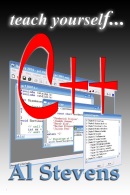Great writing: What is it?
The members of a writing forum are trying to explain to one another what constitutes great writing. Like pornography and jazz music, one cannot define it, but we know it when we see it, and it can be defined only by example.
I consider Steinbeck to be a great writer who also told good stories about well-defined characters. But if you apply today's standards to his great works, he couldn't get past an intern gatekeeper. His openings, exquisite and enduring as they are, would be ripped to shreds on the Share Your Work forum of a writer's discussion group. Not enough action. No hook. Too much telling. Too much backstory and description.
But such great writing.
You can see for yourself. Search the Kindle Store for Steinbeck and use the "Look Inside" feature. Do the same for Fitzgerald, Faulkner, Rawlings, Vonnegut, Lewis.
It has been said that "It was" is the weakest construction in the English language and that writers should avoid it at all costs. Another rule? A loaf of horse hockey, I say. Aren't we glad Dickens didn't know that rule?
Great writing does not rely on formulae and the rigid rules laid down by editors, critics, and reviewers. Imagine Rabbit's mental meanderings during his nighttime drive through the roads of Pennsylvania written according to the rules. How bland would that be?
If your book keeps me up all night, makes me forget to take time out to eat, and keeps me away from my computer, then you are a great writer.
I consider Steinbeck to be a great writer who also told good stories about well-defined characters. But if you apply today's standards to his great works, he couldn't get past an intern gatekeeper. His openings, exquisite and enduring as they are, would be ripped to shreds on the Share Your Work forum of a writer's discussion group. Not enough action. No hook. Too much telling. Too much backstory and description.
But such great writing.
You can see for yourself. Search the Kindle Store for Steinbeck and use the "Look Inside" feature. Do the same for Fitzgerald, Faulkner, Rawlings, Vonnegut, Lewis.
It has been said that "It was" is the weakest construction in the English language and that writers should avoid it at all costs. Another rule? A loaf of horse hockey, I say. Aren't we glad Dickens didn't know that rule?
Great writing does not rely on formulae and the rigid rules laid down by editors, critics, and reviewers. Imagine Rabbit's mental meanderings during his nighttime drive through the roads of Pennsylvania written according to the rules. How bland would that be?
If your book keeps me up all night, makes me forget to take time out to eat, and keeps me away from my computer, then you are a great writer.















